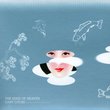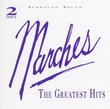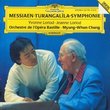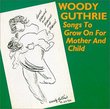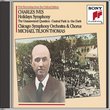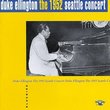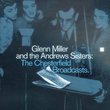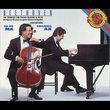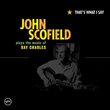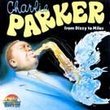| All Artists: Arnold Schoenberg, Maurizio Pollini Title: Schoenberg: The Piano Music / Maurizio Pollini Members Wishing: 0 Total Copies: 0 Label: Dg Imports Release Date: 10/25/1990 Album Type: Import Genre: Classical Styles: Forms & Genres, Suites Number of Discs: 1 SwapaCD Credits: 1 UPC: 028942324923 |
Search - Arnold Schoenberg, Maurizio Pollini :: Schoenberg: The Piano Music / Maurizio Pollini
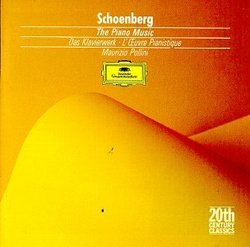 | Arnold Schoenberg, Maurizio Pollini Schoenberg: The Piano Music / Maurizio Pollini Genre: Classical
The first great pianist to record all of Schoenberg's piano music was Glenn Gould, and if you grew up with Gould's interpretations, then you're in for a shock. In the first place, Pollini actually plays what Schoenberg wro... more » |
Larger Image |
CD DetailsSynopsis
Amazon.com essential recording The first great pianist to record all of Schoenberg's piano music was Glenn Gould, and if you grew up with Gould's interpretations, then you're in for a shock. In the first place, Pollini actually plays what Schoenberg wrote--Gould freely altered the text in ways that would have driven the composer insane. And then there's the humming--yes, believe it or not, Gould did manage to sing along as he played. Pollini's quieter, less vocal approach conveys much more of what Schoenberg actually wrote, with no sacrifice of expressiveness. And although most of the pieces on this disc are quite short, they are nonetheless important. It was in his piano works that Schoenberg worked out his theories of free atonality and 12-tone composition. So for anyone interested in these critical musical developments, this disc is essential listening. --David Hurwitz Similar CDs
Similarly Requested CDs
|
CD ReviewsA staggering interpretation with 100% conviction Daniel R. Greenfield | 05/20/1999 (5 out of 5 stars) "Schoenberg's music can be difficult for the first time listener - that I admit. If you give it some time, though, it begins to make much more sense, and the passion and expression written into the score begin to come out. It may not happen the first or second time you listen to this record, but if you put forth an effort, it will happen. Pollini plays these pieces with 100% conviction - absolutely essential for this music to come across. I would call his music making immaculate. As for that other review of this disc and the comments on Schoenberg, that listener did not do his homework on Schoenberg or the system which he created. Schoenberg did not set out to destroy tonality, he merely took the next logical step and devised a system (which even he does not strictly follow) that is derived from natural acoustical principles (overtone series). No self-respecting musicologist or even afficionado can deny that. If your not sure, do your own reasearch and find out. As part of your reasearch, buy this album - if you approach it with an open mind, it will not displease." A terrible beauty is born. Daniel R. Greenfield | Milwaukee, Wisconsin, United States | 02/06/2001 (5 out of 5 stars) "What an incredibly powerful work of art this album is. A previous reviewer referred to the music as being extremely sensual and decadent; it is that and more. I would call it both erotic and demonic. It is also unbelievably intimidating at first! But such is to be expected in an intimate encounter with raw and complex genius. Pollini truly believes in the beauty and terror of this music; it is an immaculate and inspired performance, full and bursting with fiery energy and sudden, unpredictable humanity." Schoenberg's Short Masterpieces 09/03/2000 (5 out of 5 stars) "I am astonished by the review that gave this only 1 star. Schoenberg, even though he never played the piano, wrote masterfully for the instrument. These pieces advance piano literature by light-years, and one should not be prejudiced against them because none of them are written in his early post-Wagnerian manner. My advice: listen to each piece for 5 times consecutively. Then you will behold the poignant expressionism that many of the pieces convey. Great Works of Music. A Must for anyone interested in 20th Century Music."
|

 Track Listings (23) - Disc #1
Track Listings (23) - Disc #1